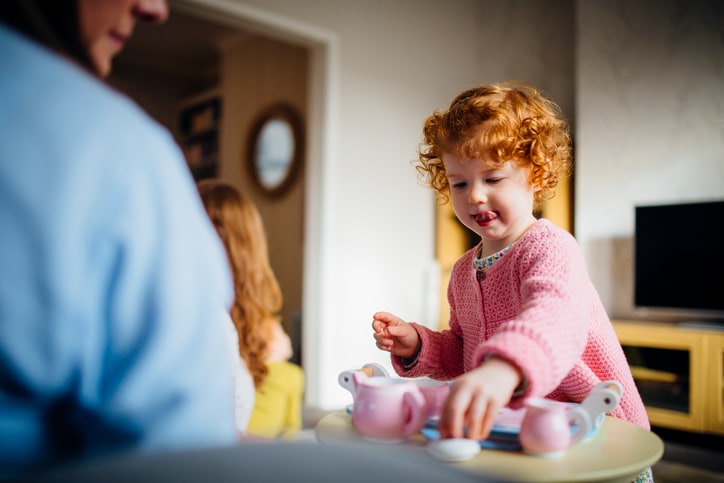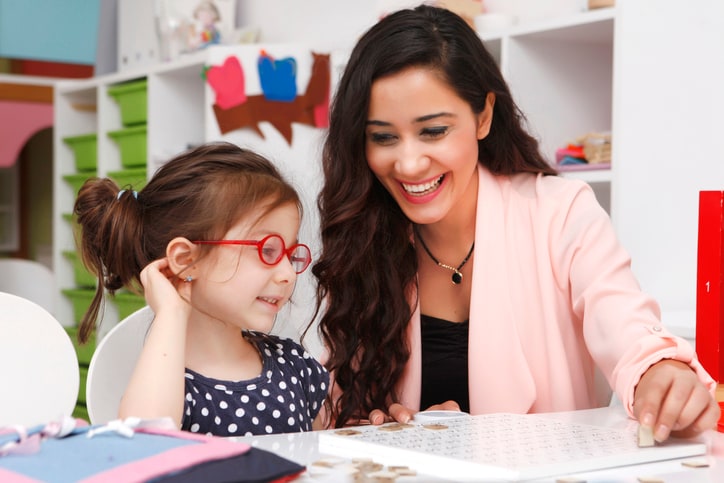Since my daughter entered toddlerhood, we spend lots of time at our local parks. They’re so familiar to me that I can easily point out their differences. One has a really fast slide, one has newer swings, and one has better shade. What they all have in common, however, are parents pleading with their kids to share. No matter where I go, I hear the same request: “Let’s try and share with everyone else, OK?”
Truth be told, I’m one of those parents.
The setup
Here’s the scenario: We bring sand toys to the park. My daughter immediately abandons them, instead grabbing someone else’s toy that catches her attention. Toy owner gets upset, and a parent rushes over to ask their child to share with mine. Minutes pass. My daughter notices someone playing with her previously banished toys. Running over, she takes them back from the child. Now I’m the parent wrangling a toy from my daughter’s impressively tight grip while asking her to share. What’s a parent to do?
MINE!
None of this comes as a surprise to childhood development expert Marilee Hartling.
This isn’t a surprise to childhood development expert Marilee Hartling. As the founder and director of Early Childhood Development Associates in Los Angeles, constantly fields questions around how to teach toddlers learn to share. When she encounters parents who are concerned over their child’s sudden surge of possessiveness, her answer is, “Not to worry.” There’s a pattern, Hartling says, and it’s fairly predictable.
She explains that at around 18-24 months, toddlers start engaging in more social interactions with their peers. Meanwhile, these same toddlers are beginning to recognize their own autonomy. This burgeoning sense of individualism introduces an immature idea of personal ownership. According to Hartling, “whatever [they can grasp] will be picked up and called ‘mine.’”
Unfortunately, toddlers at this age haven’t developed the capacity to understand that things can also belong to other people. Conflicts come up when two toddlers want the same object because, developmentally, they don’t understand how ownership really works. This often results in hurt feelings, tantrums, or tears. Parents and caretakers will often make a request to “share” to diffuse the situation and teach about cooperation.
But does telling them to share actually teach kids anything? More importantly, is there ever a time when it’s OK not to share?
Yes and no, says Hartling.
Taking turns
Hartling believes that learning to share is “a very gradual process” that typically starts when toddlers are around 18 months old. In fact, the concept of sharing is not fully understood until a child’s 3rd or 4th birthday. Parents and caretakers can help this process along by encouraging toddlers to trade and take turns with others. Playing games that involve these kinds of social skills can help introduce the concept of sharing to toddlers in a more controlled environment.
Another powerful way to encourage sharing behaviors is by modeling the desired behavior yourself. In fact, modeling sharing behavior, while using the term “share,” can help toddlers link the word to an actual concept. For example, if everyone in a family is watching television, a parent can say something like, “Guess what? We’re all sharing the TV right now.” This small action can go a long way toward helping toddlers make the connection between the word “share” and a real-time behavior. The more this type of modeling is done, the more likely it is that a child will pick up on the concept in other places and situations.
Just say…”no”?
What about when your child doesn’t want to share?
A mother made waves earlier this year when she told her son he did not have to share his toys with others, and then described the experience in a Facebook post. While at a local park, six boys approached the woman’s son, wanting to play with his toys. He did not know the boys, and turned to his mom for guidance on what to do. Sensing his obvious discomfort, the mother assured her son that could refuse to share. Was this the right thing to do?
That’s fine, says Hartling, who explained that sharing is a complex issue that’s dependent on individual situations.
“I think there are times when children should be able to claim their own things and say that they’re not ready to share, as well as times when it’s important to share and coach children to do so.”
In this instance, the child was feeling uncomfortable about having to share his possessions – and with strangers, no less. To help kids cope with these types of situations, Hartling argues that it’s perfectly reasonable to teach children how to respectfully decline a request to share.
Communicate to set expectations
This leads to Hartling’s last point: It’s important to set clear expectations around sharing. Before going out in public – whether to a playdate or a playground – discuss the situation with toddlers beforehand and explain when it’s good to share, and when it’s okay not to.
“The key is preparation,” says Hartling, so that your child knows what to expect and you are both on the same page. She adds that when you communicate with your child about sharing, “your child and their ideas around their things are honored, while also getting the practice in of learning about the needs of others.”
Just make sure it’s a two-way conversation, rather than a monologue. This way, expectations are clear from the start, allowing both parent and child to be on the same page.
Getting there
With these guidelines of preparation, good communication, and practice, Hartling is confident that parents can help toddlers conceptualize sharing with others, while minimizing stress. She reminds her clients that this process takes time, and must be practiced with a big dose of patience. Toddlers need a lot of repetitive behavior before they can “get it,” so don’t expect big changes overnight.
Personally, I tried putting these suggestions into practice and was excited to try them out on the playground. Things went better than expected, until my 22-month-old pilfered her friend’s water bottle at the park. Taking a sip, she looked at me and loudly screamed, “SHARE!”
Looks like we still have a lot of work to do.






